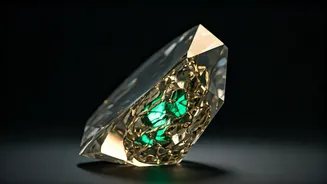Unraveling the Mystery of Pluto: Planet or Not? Dive into the debate that continues to intrigue scientists and enthusiasts alike
For many years, Pluto was known as the ninth planet in our solar system.
Kids learned about it in school, and it was a regular member of the planetary family.
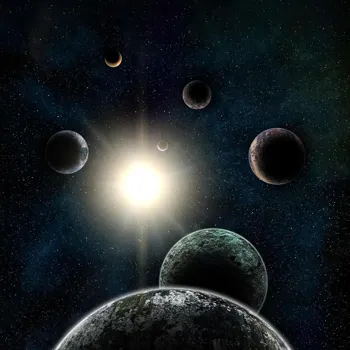
But in 2006, the International Astronomical Union (IAU), the group of scientists that names celestial bodies, changed its definition of what a planet is. And after that change, Pluto was no longer considered a planet. Instead, it was reclassified as a "dwarf planet.
" This decision stirred up a lot of debate, and even today, people are still arguing about whether it was the right thing to do.
The main reason for Pluto's demotion was that it didn't meet all three criteria that the IAU set for a planet. First, it orbits the Sun, which Pluto does.
Second, it is round or nearly round because of its own gravity, which Pluto also meets. But the third criterion is where Pluto falls short: it has not "cleared its neighborhood" of other objects.
This means that in its orbit around the Sun, there are other objects of similar size and characteristics. A true planet, according to the IAU, should be the dominant gravitational force in its orbit.
Many people were upset by this decision.
They had grown up thinking of Pluto as a planet and felt like it was being unfairly excluded. Some astronomers also disagreed with the IAU's definition, arguing that it was too rigid and didn't accurately reflect the diversity of objects in our solar system.
They pointed out that even some of the traditional planets, like Earth, haven't completely cleared their orbits. There are asteroids that cross Earth's orbit, for example.
The debate over Pluto's planetary status continues to this day.
Some scientists and enthusiasts still refer to Pluto as a planet, while others accept the IAU's definition. The issue is not just about semantics; it's about how we understand and classify the objects in our solar system.
Understanding the cosmos is very crucial to understanding our planet and this debate is very important.
Why the Change? The IAU's Reasoning
The IAU's decision to redefine "planet" wasn't arbitrary.
It came about because astronomers were discovering more and more objects in the outer solar system that were similar in size to Pluto. One of these objects, Eris, was even thought to be larger than Pluto.
If Pluto was considered a planet, then so should Eris, and potentially many other similar objects. This would have led to a situation where we had dozens of planets in our solar system, which the IAU felt would be unwieldy and confusing for students and the public.
The body thought it was a good idea to redefine Pluto. The decision was taken to make the subject seem very clear.
The IAU's definition of a planet has three main criteria:
Massive object shaped by gravity
It must be massive enough for its own gravity to pull it into a nearly round shape.
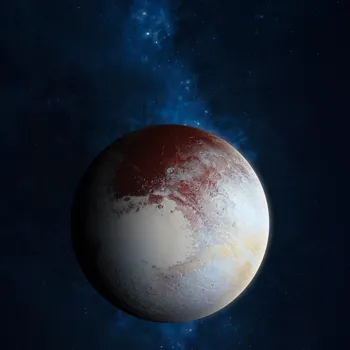
It must have "cleared its neighborhood" around its orbit.
This last criterion is the one that Pluto fails to meet. Pluto is located in the Kuiper Belt, a region beyond Neptune that is filled with icy bodies, including many objects of similar size to Pluto.
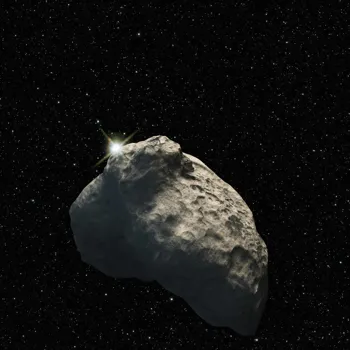
Because Pluto shares its orbital space with these other objects, it is not considered to have "cleared its neighborhood."
The Counter-Arguments: Why Pluto Should Still Be a Planet
Many people disagree with the IAU's definition of a planet and argue that Pluto should still be considered one. Some of the main arguments in favor of Pluto's planetary status are:
Historical Precedent
Pluto was considered a planet for over 70 years. Demoting it feels like changing the rules of the game after everyone has already learned them.
The Definition is Flawed
The "clearing the neighborhood" criterion is vague and subjective. Even Earth hasn't completely cleared its orbit, as there are asteroids that cross its path.
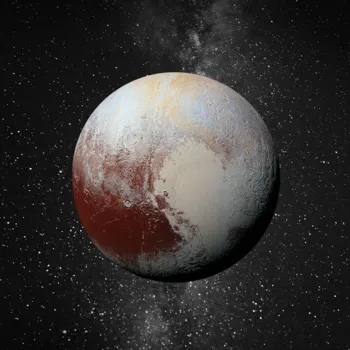
Geophysical Definition: Some scientists argue for a geophysical definition of a planet, which focuses on the object's intrinsic properties, such as whether it is round and geologically active. By this definition, Pluto is definitely a planet.
The debate is not just about semantics. For some scientists, it is a matter of how we understand and explore the solar system. They believe that Pluto is a fascinating and complex world that deserves planetary status.
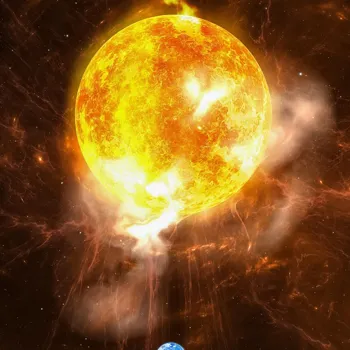
Impact on Science and Education
The reclassification of Pluto has had a significant impact on science and education. Textbooks and curricula have been updated to reflect the new definition of a planet. Students now learn about dwarf planets as a distinct category of objects in the solar system.
The change has also sparked a renewed interest in the outer solar system and the Kuiper Belt. Scientists are now studying Pluto and other dwarf planets in more detail, hoping to learn more about the formation and evolution of these distant worlds.
NASA's New Horizons mission, which flew past Pluto in 2015, provided unprecedented images and data about the dwarf planet, revealing a surprisingly complex and active world.
The Ongoing Debate and Future Perspectives
The debate over Pluto's planetary status is likely to continue for many years to come. There is no easy answer, and different people have different opinions.
However, the debate is a healthy one, as it forces us to think critically about how we classify and understand the objects in our solar system. As we discover more and more objects in the outer solar system, we may need to refine our definitions and categories even further.
Perhaps one day, we will have a more nuanced and comprehensive understanding of what it means to be a planet, or a dwarf planet, or some other type of celestial body.
Pluto: A World Worth Studying, Regardless of its Label
Regardless of whether it is called a planet or a dwarf planet, Pluto is a fascinating and important object in our solar system. It is a complex and dynamic world with a rich geological history.
Studying Pluto can help us learn more about the formation and evolution of the solar system, as well as the potential for life beyond Earth. The New Horizons mission revealed that Pluto has a surprisingly active surface, with mountains, glaciers, and plains.
It also has a thin atmosphere that undergoes seasonal changes. Pluto is a world that is full of surprises, and it is definitely worth exploring, no matter what we call it. It is the only planet of the solar system to be discovered by an American and it is a very crucial part of our history.
AI Generated Content. Glance/InMobi shall have no liability for the content



